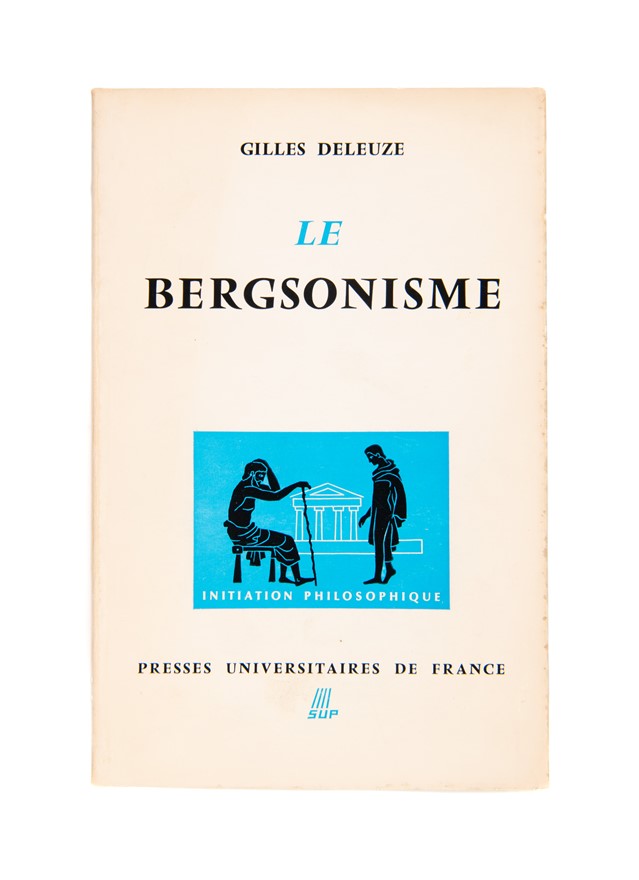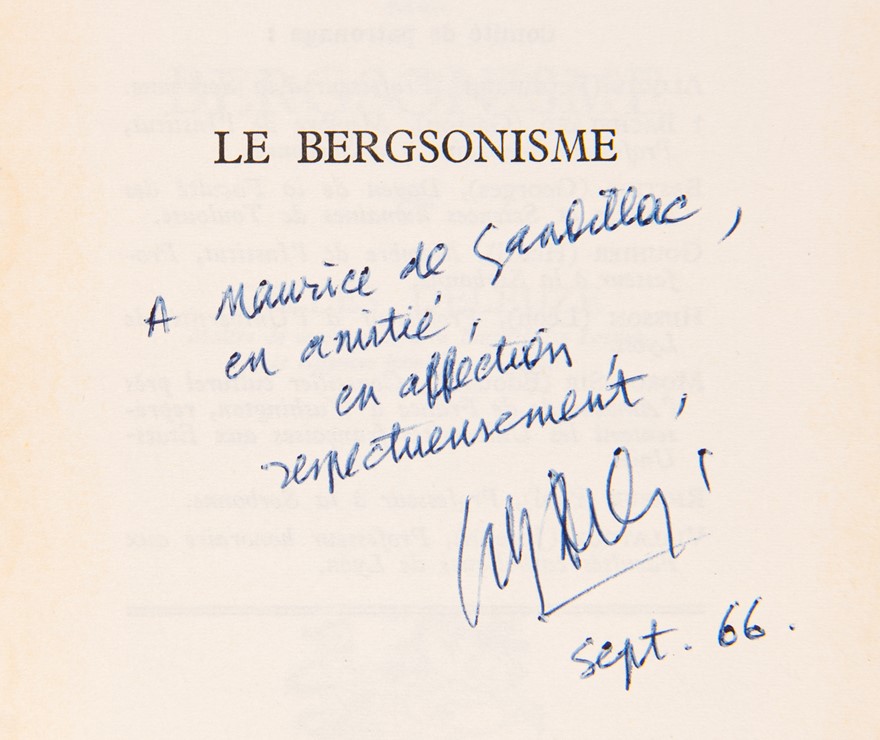Le Bergsonisme.
DELEUZE Gilles (1966.)
£1250.00 [First Edition]
Please contact us in advance if you would like to view this book at our Curzon Street shop.
First edition. 12mo. [4], 119, [5] pp. Original printed wrappers (just a hint of faint spotting to edges and endpapers; covers slightly browned, otherwise a very good copy indeed). Paris, Presses Universitaires de France, collection Initiation philosophique.
A nice association copy, inscribed by the author 'À Maurice de Gandillac, en amitié, en affection, respectueusement Gilles Deleuze sept. 66' in blue ink to the half title.
The recipient, Maurice de Gandillac (1906-2006), was Professor of History of the Middle Ages and Renaissance Philosophy at the Sorbonne from 1946 to 1977, where he exercised considerable influence over Deleuze's generation of philosophers; indeed, his list of students reads almost as a 'who's who' of post-structuralist philosophers, including Deleuze as well as Jacques Derrida, Michel Foucault, Louis Althusser and Jean-François Lyotard, amongst others.
Gandillac's influence on Deleuze is particularly noteworthy as he supervised Deleuze's principal thesis for the Doctorat D'Etat, what would become Deleuze's principal original philosophical work, eventually published in 1968 as Difference and Repetition. Gandillac's great specialism in the history of philosophy was highly influential to Deleuze's early run of publications, a series of monographs that developed his own 'counter-history' of philosophy through highly idiosyncratic readings of a then-unusual grouping of key philosophers, including David Hume, Spinoza, Kant, Nietzsche, and, in the present book, Henri Bergson.
Admirably condensing years of close study by Deleuze, this monograph on Bergson triggered a revival of interest in a once-popular philosopher who had in previous decades become decidedly unfashionable. Decried by leftist intellectuals such as Georges Politzer as a representative of uncritical and unreflective bourgeois psychologism, the public doxa regarding Bergson in France was such that Deleuze's championing of his thought stood for an authentically subversive philosophical allegiance. Seeking to escape the strictures of mainstream philosophy (centred as it was on Hegel, Husserl and Heidegger), Bergson offered Deleuze an opportunity as someone 'who seemed to be part of the history of philosophy, but who escaped from it in one respect or altogether' (Deleuze, Dialogues, p. 14). As is typical of Deleuze's studies from this time, the articulation of another's thought was largely an opportunity to develop his own: Bergson's notions of multiplicity, duration, intuition and élan vital each become for Deleuze tools with which to advance his lifelong metaphysical project; that is to say, to dismantle dualism and to articulate an ontology of difference-in-itself. A crucial work in Deleuze's journey towards his masterwork, Difference and Repetition, as well as a direct precursor to his later books on cinema.
Stock Code: 243745





